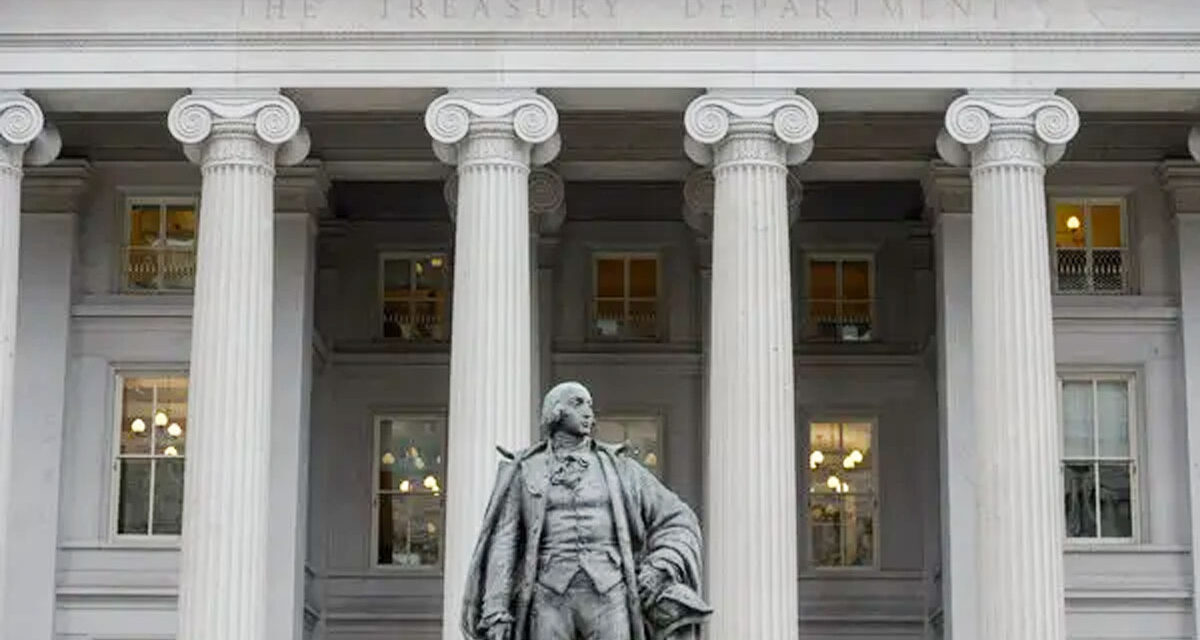
China Hacks the U.S.Treasury

The U.S. Treasury Department has revealed a major cybersecurity breach attributed to Chinese state-sponsored hackers. This incident was labeled a “major cybersecurity incident,” raising critical concerns about the long-term security of U.S. financial systems, the extent of the compromise, and the broader pattern of Chinese cyber operations.
The breach was made possible through a third-party service provider, BeyondTrust, which offers remote technical support to Treasury employees. Hackers managed to steal a key used to override security measures, granting them remote access to several employee workstations and unclassified documents. While the Treasury has stated there is no evidence of ongoing access, the incident highlights vulnerabilities in external partnerships and cloud-based services.
BeyondTrust detected suspicious activity on December 2, but it took three days to confirm the breach. Treasury officials were informed on December 8 and immediately began collaborating with the FBI, Cybersecurity and Infrastructure Security Agency (CISA), and other intelligence agencies to assess the damage.
In a letter to lawmakers, Aditi Hardikar, Assistant Secretary for Management at the Treasury, explained, “With access to the stolen key, the threat actor was able to override the service’s security, remotely access certain Treasury [Departmental Office] user workstations, and access certain unclassified documents maintained by those users.”
The compromised third-party service, BeyondTrust, was quickly taken offline to prevent further unauthorized access. Yet, the damage had already been done, and the investigation into the breach’s full scope is ongoing.
What Could Have Been Compromised?
The Treasury Department is responsible for monitoring global financial systems, enforcing economic sanctions, and managing sensitive financial data. While the breached documents were classified as “unclassified,” such data can still contain sensitive insights when aggregated. Hackers potentially had access to:
- Internal financial analyses
- Information on economic sanctions
- Details about upcoming policy changes
Even seemingly innocuous data can be pieced together to create a clearer picture of U.S. economic and political strategies. As Hardikar noted in the letter to lawmakers, “At this time, there is no evidence indicating the threat actor has continued access to Treasury systems or information.”
The ability to access financial systems, the ability to create accounts, change passwords, or monitor workstations could have far-reaching consequences. Additionally, imagine the hackers having the ability to change reporting information, to influence policymakers with incorrect data, to track and compromise employees, and much more. A compromise of the U.S. Treasure means that any utility from that department is nullified, the information to the financial world, the directives, the advice to the President, useless.
A Broader Pattern of Cyber Espionage
This breach is not an isolated incident. Over the past year, multiple high-profile cyberattacks have been attributed to Chinese state-sponsored groups like Volt Typhoon and Salt Typhoon. These groups have targeted critical infrastructure, telecommunications systems, and government networks. Their objectives often involve espionage rather than immediate financial gain, with stolen data being used for intelligence gathering and strategic planning.
The Salt Typhoon group, for example, previously infiltrated telecom systems, accessing call logs, text messages, and potentially even audio conversations of U.S. officials. According to U.S. officials, this breach affected at least nine telecommunications companies.
A senior White House official commented, “The number of telecommunications companies confirmed to have been affected by the hack has now risen to nine.”
These attacks illustrate a growing trend of state-sponsored cyber operations aimed at long-term intelligence goals. They also reveal a pattern of leveraging vulnerabilities in third-party vendors and service providers to gain indirect access to critical systems.
The Treasury’s role as a gatekeeper of global financial stability makes it a prime target. A successful hack on such an institution can have cascading effects on global markets, undermine confidence in financial systems, and provide adversaries with a strategic advantage.
Furthermore, this incident highlights ongoing vulnerabilities in the partnerships between government agencies and third-party service providers. As the reliance on cloud-based solutions grows, so does the risk of supply chain attacks. The use of stolen credentials and keys to bypass traditional security measures has become a recurring theme in recent cyber breaches.
Anne Neuberger, U.S. Deputy National Security Adviser for Cyber and Emerging Technology, emphasized the gravity of such threats, stating, “We felt there was real strategic risk here. These breaches, because they involve critical infrastructure and sensitive systems, could have real impacts on our economy and national security.”
The Investigation and Response
The Treasury Department has pledged to release a supplemental report within 30 days to provide lawmakers with a clearer picture of the damage. In the meantime, investigations continue with forensic experts and intelligence agencies working to determine the full scope of the breach.
A Treasury spokesperson reassured the public, saying, “Treasury takes very seriously all threats against our systems, and the data it holds. Over the last four years, Treasury has significantly bolstered its cyber defense, and we will continue to work with both private and public sector partners to protect our financial system from threat actors.”
However, cybersecurity analysts warn that sophisticated attackers like Advanced Persistent Threat (APT) groups, backed by state resources, are difficult to fully eliminate from compromised systems. Even if access is revoked, attackers often leave behind hidden pathways for potential re-entry.
This is breathtaking incompetence from the Biden administration in protecting against Chinese cyber attacks. U.S. institutions and critical infrastructure are vulnerable, and China is in the attack mode.



























It is not a breach if Biden gave them the code?
After all he gave then access to every thing else!
Our country does have a price when the wrong A Hole sites in the
White House!
Remember, This Administration could not stop a Shooter in Plain site, and
they are supposed to find a cyber attack!
DEI at its finest!
I’m ashamed of our president. He doesn’t know the damages he’s caused and is ontinuing to produce. We the people are going to continue to live with all his mistakes. If there are really mistakes or his way of doing additional damages. He’s definitively working against America. He’s put us last on his to do list. He’s made billions by dealing with China and our enemies. Why can’t they get him out now before he dies more damages and problems! He has failed in everything he does. Who is running the country? He wife? His son? One worse than the other. Open your eyes Americans. See the truth!